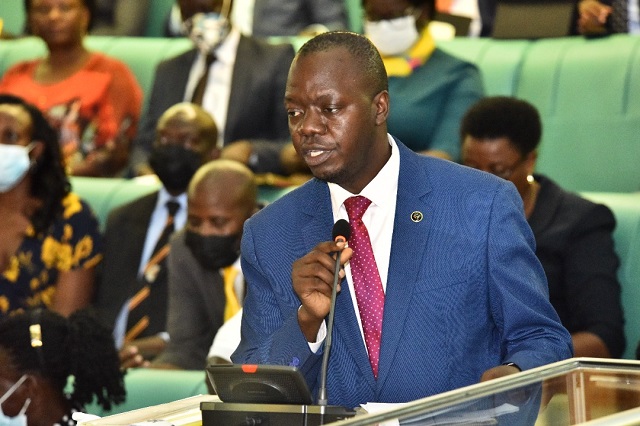
Kampala, Uganda | THE INDEPENDENT | Parliament’s Committee on National Economy proposed in a report to cap the minimum amount for external borrowing to above US$20 million to minimise costs related to contracting loans and maximising the benefits.
The report was presented by the committee vice chairperson, Robert Migadde, during a plenary sitting held on Tuesday, 23 August 2022.
“The committee further recommends that government should, in future develop mechanisms of internally financing small scale projects so as to avert future pressures of debt,” read the committee report.
Migadde told the House that the overall performance of the Karamoja Infrastructure Development Phase II (KIDPII) is at zero, as of August 2022 according to a report on the performance of the Euros10 million loan from the Government of Italy meant to fund the project under the Health Sector Development Plan.
Migadde said no loan disbursements have been made by the project financiers, attributed to delays by the finance ministry to put in place key loan effective conditions that would trigger loan disbursement for implementation of the project.
“As a result, the anticipated project objectives, outputs and outcomes have not been met despite the timely approval of this loan by the Parliament of Uganda,” he added.
The committee report revealed that the finance ministry signed the financing agreement without seeking the legal opinion of the Attorney General, in contravention of Article 119 4(b) of the Constitution.
It also revealed that the disbursement of the loan was affected by endless correspondences between different officials from the Attorney General’s office and those from the finance ministry over a two-year period.
The report made recommendations including holding officials who signed the financing agreement without the Attorney General’s legal opinion, personally responsible for shortcomings in the project delays.
“The committee further recommends that the finance ministry, the Attorney General and any other ministry relevant to fulfilling the effectiveness conditions of a loan, should form a committee to minimise the bureaucracy in inter-ministerial correspondences,” the report reads.
The Attorney General, Kiryowa Kiwanuka, noted that a lot of time is lost in inter-government departmental communications and letters, but said there are plans to make it smoother.
“We have taken on a new method where we meet physically, go through these processes and then render an opinion after we have discussed them. We are now moving more efficiently than before,” Kiryowa Kiwanuka said.
On the recommendation by the committee for government to absorb financing for small scale projects without borrowing, Deputy Speaker Thomas Tayebwa said it would be expensive in the long run.
“How does government get this money? Some of it is borrowed from the money market at over 15 per cent through bonds and bills. This loan from Italy is one we are getting with no management or commitment fees. This is more less an interest free loan,” Tayebwa noted.
He also told the House that the first batch of Euros5 million of the loan will be released so as to commence implementation of the project.
MPs Rose Obigah of Terego district and Faith Nakut, Napak district called for tracking of projects in the country so as to ensure their effective implementation.
The Karamoja Infrastructure Development Phase II was designed to address low health care infrastructure distribution, improve the coverage situation, access and quality of healthcare in the region.
*****
SOURCE: UGANDA PARLIAMENT MEDIA
 The Independent Uganda: You get the Truth we Pay the Price
The Independent Uganda: You get the Truth we Pay the Price



